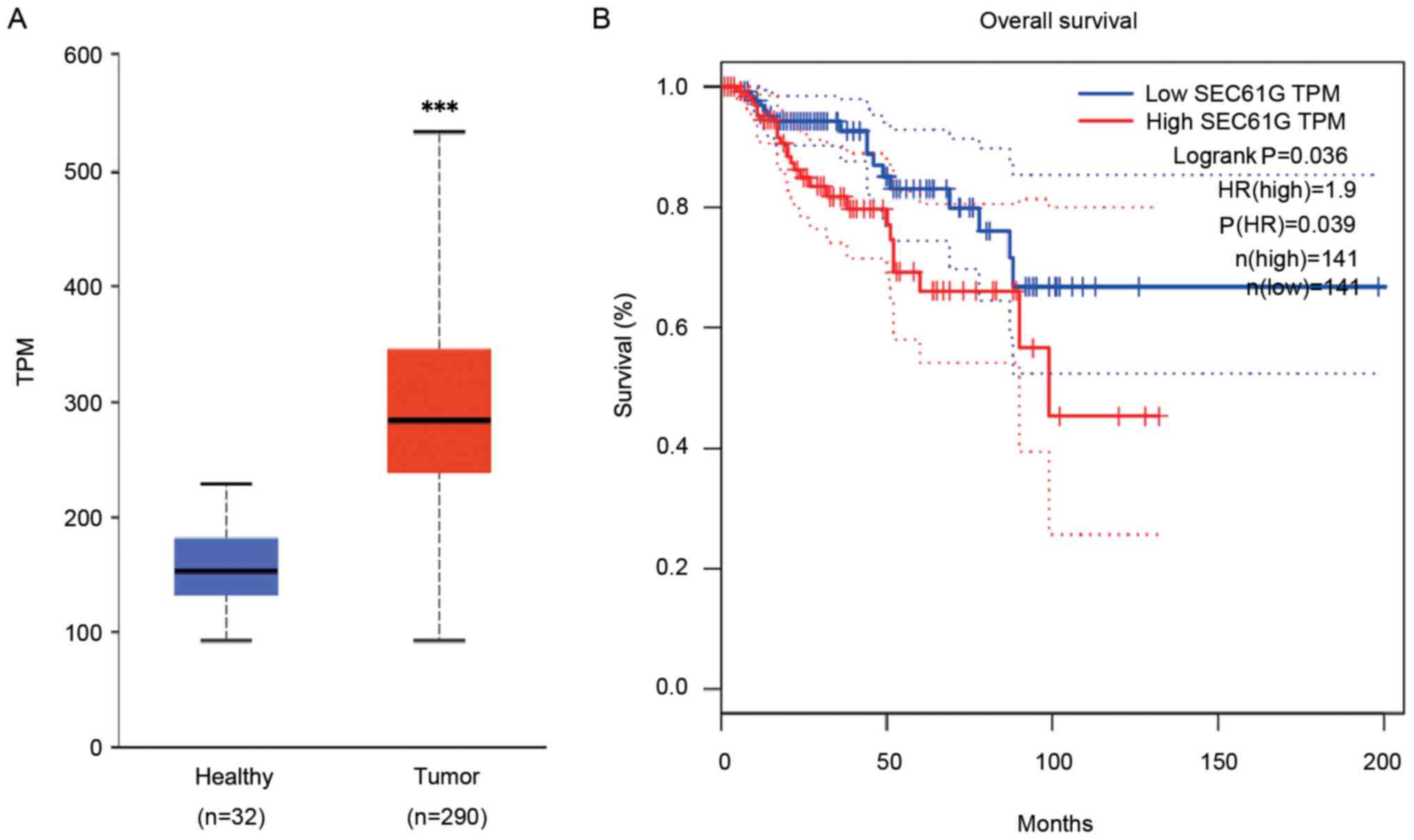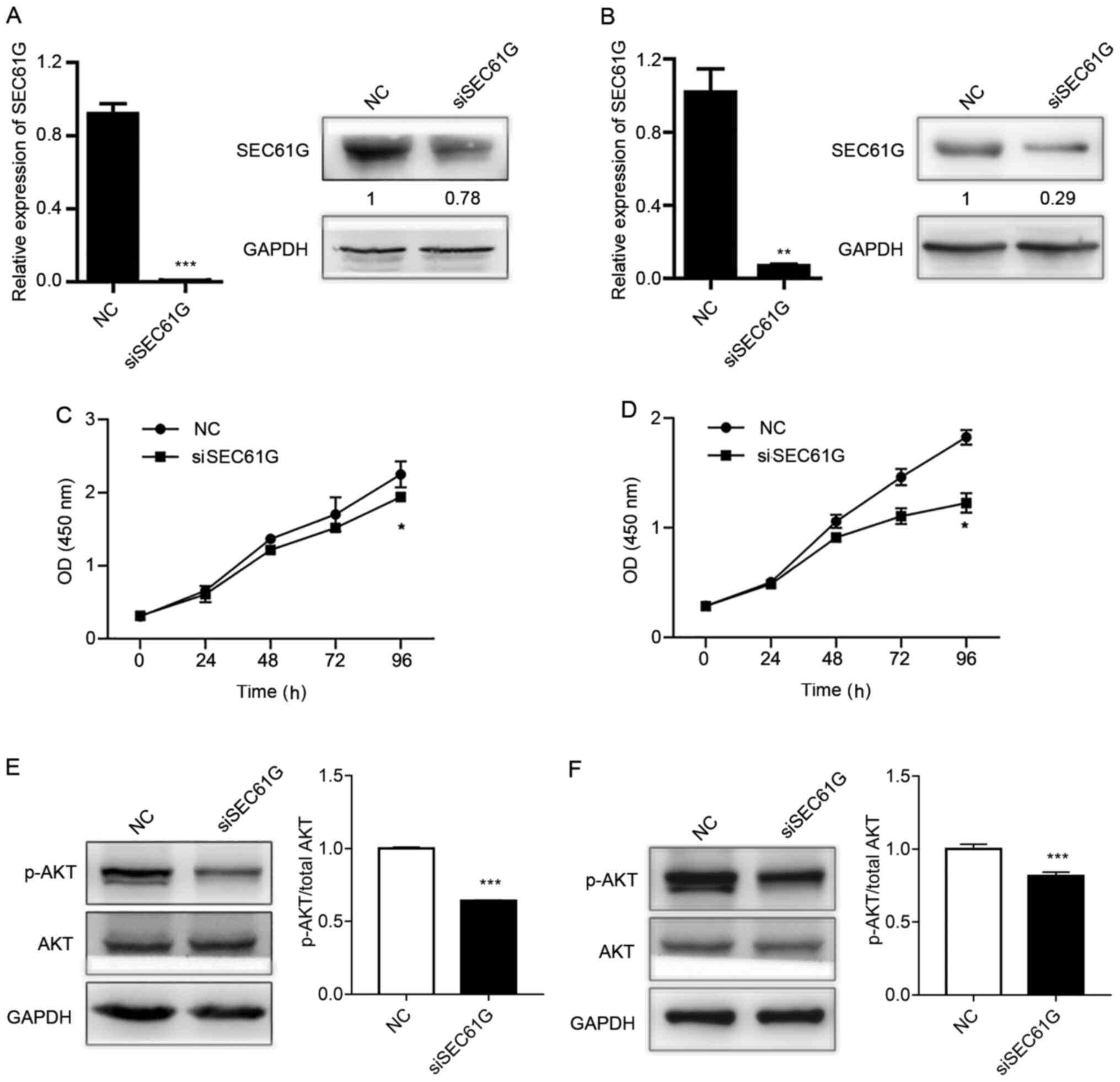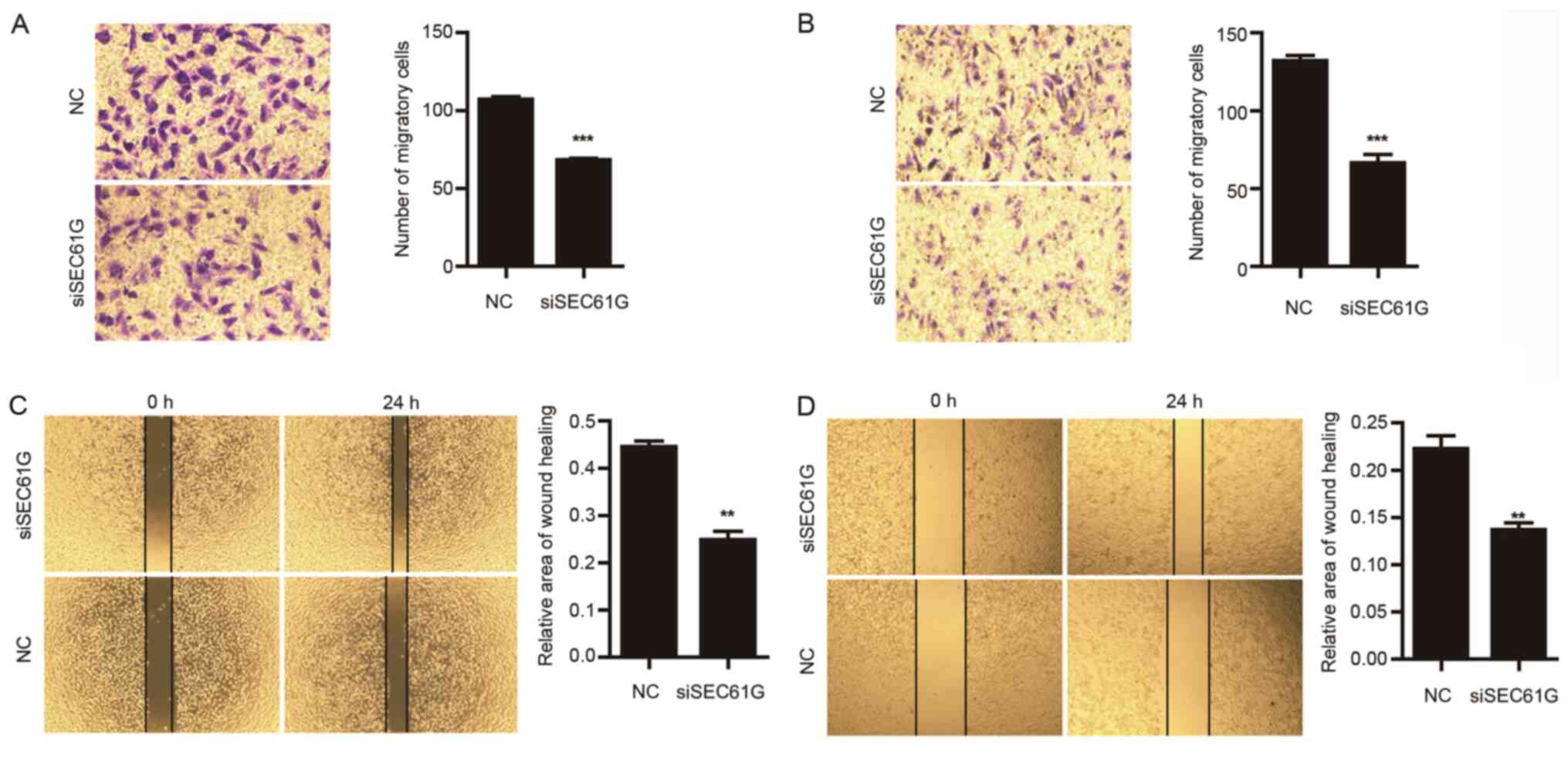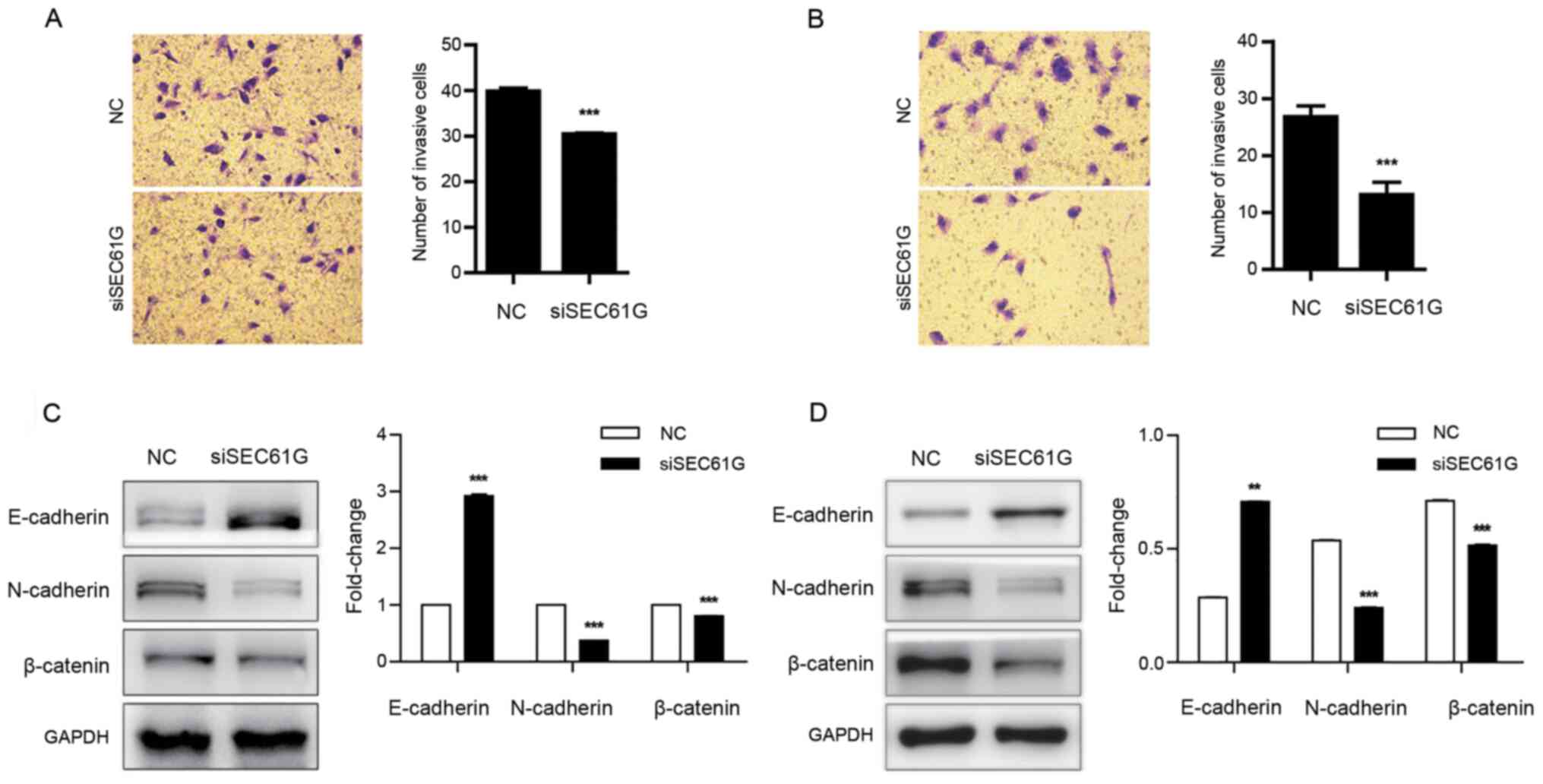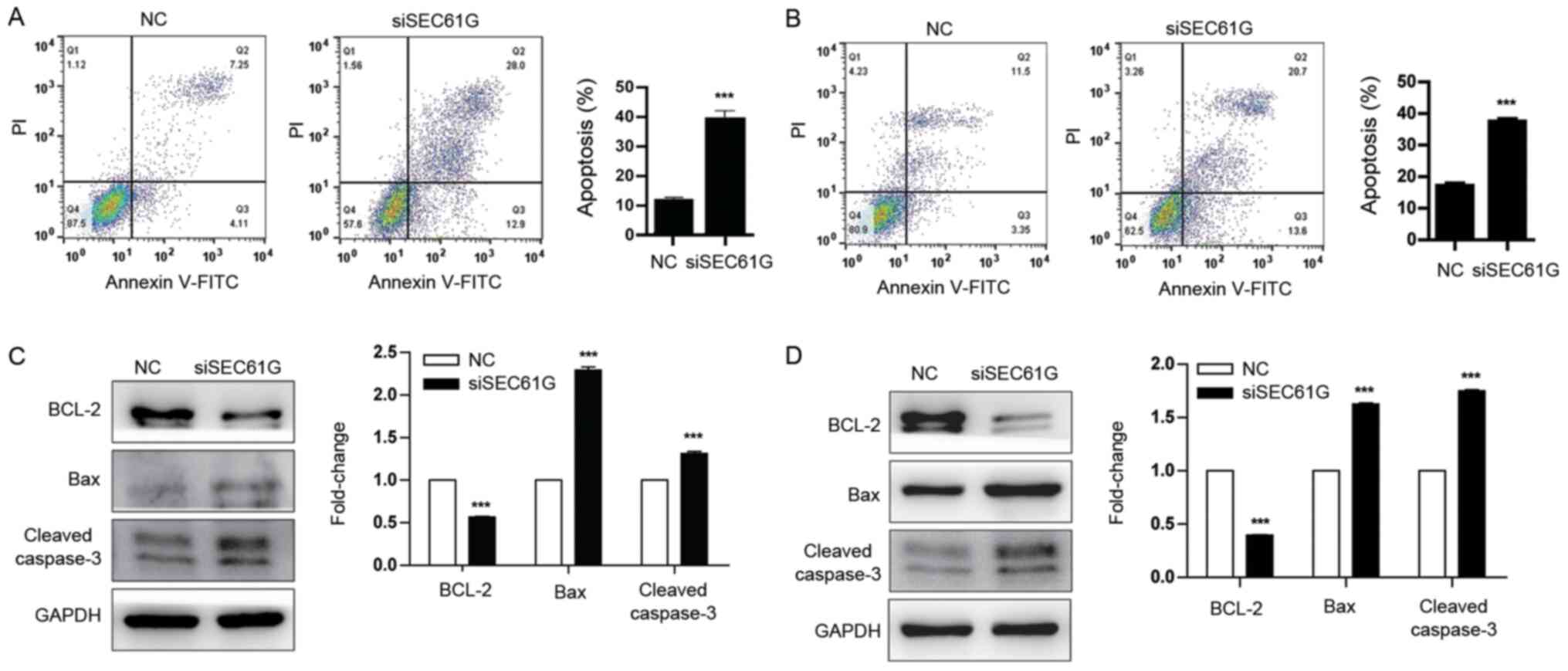|
1
|
Bray F, Ferlay J, Soerjomataram I, Siegel
RL, Torre LA and Jemal A: Global cancer statistics 2018: GLOBOCAN
estimates of incidence and mortality worldwide for 36 cancers in
185 countries. CA Cancer J Clin. 68:394–424. 2018. View Article : Google Scholar : PubMed/NCBI
|
|
2
|
Choueiri TK and Motzer RJ: Systemic
therapy for metastatic renal-cell carcinoma. N Engl J Med.
376:354–366. 2017. View Article : Google Scholar : PubMed/NCBI
|
|
3
|
Srigley JR, Delahunt B, Eble JN, Egevad L,
Epstein JI, Grignon D, Hes O, Moch H, Montironi R, Tickoo SK, et
al: The international society of urological pathology (ISUP)
vancouver classification of renal neoplasia. Am J Surg Pathol.
37:1469–1489. 2013. View Article : Google Scholar : PubMed/NCBI
|
|
4
|
Nickerson ML, Jaeger E, Shi Y, Durocher
JA, Mahurkar S, Zaridze D, Matveev V, Janout V, Kollarova H, Bencko
V, et al: Improved identification of von Hippel-Lindau gene
alterations in clear cell renal tumors. Clin Cancer Res.
14:4726–4734. 2008. View Article : Google Scholar : PubMed/NCBI
|
|
5
|
Ljungberg B, Bensalah K, Canfield S,
Dabestani S, Hofmann F, Hora M, Kuczyk MA, Lam T, Marconi L,
Merseburger AS, et al: EAU guidelines on renal cell carcinoma: 2014
update. Eur Urol. 67:913–924. 2015. View Article : Google Scholar : PubMed/NCBI
|
|
6
|
Greenfield JJ and High S: The Sec61
complex is located in both the ER and the ER-Golgi intermediate
compartment. J Cell Sci. 112:1477–1486. 1999.PubMed/NCBI
|
|
7
|
Osborne AR, Rapoport TA and van den Berg
B: Protein translocation by the Sec61/SecY channel. Annu Rev Cell
Dev Biol. 21:529–550. 2005. View Article : Google Scholar : PubMed/NCBI
|
|
8
|
Zimmermann R, Muller L and Wullich B:
Protein transport into the endoplasmic reticulum: Mechanisms and
pathologies. Trends Mol Med. 12:567–573. 2006. View Article : Google Scholar : PubMed/NCBI
|
|
9
|
Schauble N, Lang S, Jung M, Cappel S,
Schorr S, Ulucan O, Linxweiler J, Dudek J, Blum R, Helms V, et al:
BiP-mediated closing of the Sec61 channel limits Ca2+
leakage from the ER. EMBO J. 31:3282–3296. 2012. View Article : Google Scholar : PubMed/NCBI
|
|
10
|
Bolar NA, Golzio C, Zivna M, Hayot G, Van
Hemelrijk C, Schepers D, Vandeweyer G, Hoischen A, Huyghe JR, Raes
A, et al: Heterozygous loss-of-function SEC61A1 mutations cause
autosomal-dominant tubulo-interstitial and glomerulocystic kidney
disease with anemia. Am J Hum Genet. 99:174–187. 2016. View Article : Google Scholar : PubMed/NCBI
|
|
11
|
Lloyd DJ, Wheeler MC and Gekakis N: A
point mutation in Sec61alpha1 leads to diabetes and hepatosteatosis
in mice. Diabetes. 59:460–470. 2010. View Article : Google Scholar : PubMed/NCBI
|
|
12
|
Davila S, Furu L, Gharavi AG, Tian X, Onoe
T, Qian Q, Li A, Cai Y, Kamath PS, King BF, et al: Mutations in
SEC63 cause autosomal dominant polycystic liver disease. Nat Genet.
36:575–577. 2004. View
Article : Google Scholar : PubMed/NCBI
|
|
13
|
Drenth JP, Martina JA, van de Kerkhof R,
Bonifacino JS and Jansen JB: Polycystic liver disease is a disorder
of cotranslational protein processing. Trends Mol Med. 11:37–42.
2005. View Article : Google Scholar : PubMed/NCBI
|
|
14
|
Mori Y, Sato F, Selaru FM, Olaru A, Perry
K, Kimos MC, Tamura G, Matsubara N, Wang S, Xu Y, et al:
Instabilotyping reveals unique mutational spectra in
microsatellite-unstable gastric cancers. Cancer Res. 62:3641–3645.
2002.PubMed/NCBI
|
|
15
|
Schulmann K, Brasch FE, Kunstmann E, Engel
C, Pagenstecher C, Vogelsang H, Krüger S, Vogel T, Knaebel HP,
Rüschoff J, et al: HNPCC-associated small bowel cancer: Clinical
and molecular characteristics. Gastroenterology. 128:590–599. 2005.
View Article : Google Scholar : PubMed/NCBI
|
|
16
|
Casper M, Weber SN, Kloor M, Müllenbach R,
Grobholz R, Lammert F and Zimmer V: Hepatocellular carcinoma as
extracolonic manifestation of Lynch syndrome indicates SEC63 as
potential target gene in hepatocarcinogenesis. Scand J
Gastroenterol. 48:344–351. 2013. View Article : Google Scholar : PubMed/NCBI
|
|
17
|
Heselmeyer K, Macville M, Schrock E,
Blegen H, Hellström AC, Shah K, Auer G and Ried T: Advanced-stage
cervical carcinomas are defined by a recurrent pattern of
chromosomal aberrations revealing high genetic instability and a
consistent gain of chromosome arm 3q. Genes Chromosomes Cancer.
19:233–240. 1997. View Article : Google Scholar : PubMed/NCBI
|
|
18
|
Allen DG, White DJ, Hutchins AM, Scurry
JP, Tabrizi SN, Garland SM and Armes JE: Progressive genetic
aberrations detected by comparative genomic hybridization in
squamous cell cervical cancer. Br J Cancer. 83:1659–1663. 2000.
View Article : Google Scholar : PubMed/NCBI
|
|
19
|
Dehan E, Ben-Dor A, Liao W, Lipson D,
Frimer H, Rienstein S, Simansky D, Krupsky M, Yaron P, Friedman E,
et al: Chromosomal aberrations and gene expression profiles in
non-small cell lung cancer. Lung Cancer. 56:175–184. 2007.
View Article : Google Scholar : PubMed/NCBI
|
|
20
|
Lu Z, Zhou L, Killela P, Rasheed AB, Di C,
Poe WE, McLendon RE, Bigner DD, Nicchitta C and Yan H: Glioblastoma
proto-oncogene SEC61gamma is required for tumor cell survival and
response to endoplasmic reticulum stress. Cancer Res. 69:9105–9111.
2009. View Article : Google Scholar : PubMed/NCBI
|
|
21
|
Chandrashekar DS, Bashel B, Balasubramanya
SA, Creighton CJ, Ponce-Rodriguez I, Chakravarthi BV and Varambally
S: UALCAN: A portal for facilitating tumor subgroup gene expression
and survival analyses. Neoplasia. 19:649–658. 2017. View Article : Google Scholar : PubMed/NCBI
|
|
22
|
Tang Z, Li C, Kang B, Gao G, Li C and
Zhang Z: GEPIA: A web server for cancer and normal gene expression
profiling and interactive analyses. Nucleic Acids Res. 45:W98–W102.
2017. View Article : Google Scholar
|
|
23
|
Livak KJ and Schmittgen TD: Analysis of
relative gene expression data using real-time quantitative PCR and
the 2(-Delta Delta C(T)) method. Methods. 25:402–408. 2001.
View Article : Google Scholar : PubMed/NCBI
|
|
24
|
Steeg PS: Tumor metastasis: Mechanistic
insights and clinical challenges. Nat Med. 12:895–904. 2006.
View Article : Google Scholar : PubMed/NCBI
|
|
25
|
Chambers AF, Groom AC and MacDonald IC:
Dissemination and growth of cancer cells in metastatic sites. Nat
Rev Cancer. 2:563–572. 2002. View
Article : Google Scholar : PubMed/NCBI
|
|
26
|
Martini M, De Santis MC, Braccini L,
Gulluni F and Hirsch E: PI3K/AKT signaling pathway and cancer: An
updated review. Ann Med. 46:372–383. 2014. View Article : Google Scholar : PubMed/NCBI
|
|
27
|
Porta C and Figlin RA:
Phosphatidylinositol-3-kinase/Akt signaling pathway and kidney
cancer, and the therapeutic potential of
phosphatidylinositol-3-kinase/Akt inhibitors. J Urol.
182:2569–2577. 2009. View Article : Google Scholar : PubMed/NCBI
|
|
28
|
Hu H, Jiang C, Li G and Lu J: PKB/AKT and
ERK regulation of caspase-mediated apoptosis by methylseleninic
acid in LNCaP prostate cancer cells. Carcinogenesis. 26:1374–1381.
2005. View Article : Google Scholar : PubMed/NCBI
|
|
29
|
Wang C, Jette N, Moussienko D, Bebb DG and
Lees-Miller SP: ATM-deficient colorectal cancer cells are sensitive
to the PARP inhibitor olaparib. Transl Oncol. 10:190–196. 2017.
View Article : Google Scholar : PubMed/NCBI
|
|
30
|
Gross-Goupil M, Massard C and Ravaud A:
Targeted therapies in metastatic renal cell carcinoma: Overview of
the past year. Curr Urol Rep. 13:16–23. 2012. View Article : Google Scholar : PubMed/NCBI
|
|
31
|
Mrozik KM, Blaschuk OW, Cheong CM,
Zannettino AC and Vandyke K: N-cadherin in cancer metastasis, its
emerging role in haematological malignancies and potential as a
therapeutic target in cancer. BMC Cancer. 18:9392018. View Article : Google Scholar : PubMed/NCBI
|
|
32
|
Pal I, Rajesh Y, Banik P, Dey G, Dey KK,
Bharti R, Naskar D, Chakraborty S, Ghosh SK, Das SK, et al:
Prevention of epithelial to mesenchymal transition in colorectal
carcinoma by regulation of the E-cadherin-β-catenin-vinculin axis.
Cancer Lett. 452:254–263. 2019. View Article : Google Scholar : PubMed/NCBI
|
|
33
|
Tania M, Khan MA and Fu J: Epithelial to
mesenchymal transition inducing transcription factors and
metastatic cancer. Tumour Biol. 35:7335–7342. 2014. View Article : Google Scholar : PubMed/NCBI
|
|
34
|
Gao H, Niu W, He Z, Gao C, Peng C and Niu
J: SEC61G plays an oncogenic role in hepatocellular carcinoma
cells. Cell Cycle. 19:3348–3361. 2020. View Article : Google Scholar : PubMed/NCBI
|
|
35
|
Hanahan D and Weinberg RA: Hallmarks of
cancer: The next generation. Cell. 144:646–674. 2011. View Article : Google Scholar : PubMed/NCBI
|
|
36
|
Liao HJ and Carpenter G: Role of the Sec61
translocon in EGF receptor trafficking to the nucleus and gene
expression. Mol Biol Cell. 18:1064–1072. 2007. View Article : Google Scholar : PubMed/NCBI
|
|
37
|
Sorkin A: Internalization of the epidermal
growth factor receptor: Role in signalling. Biochem Soc Trans.
29:480–484. 2001. View Article : Google Scholar : PubMed/NCBI
|
|
38
|
Hu M, Zhu S, Xiong S, Xue X and Zhou X:
MicroRNAs and the PTEN/PI3K/Akt pathway in gastric cancer (Review).
Oncol Rep. 41:1439–1454. 2019.PubMed/NCBI
|
|
39
|
Hanahan D and Weinberg RA: The hallmarks
of cancer. Cell. 100:57–70. 2000. View Article : Google Scholar : PubMed/NCBI
|
|
40
|
Friedl P and Wolf K: Tumor-cell invasion
and migration: Diversity and escape mechanisms. Nat Rev Cancer.
3:362–374. 2003. View Article : Google Scholar : PubMed/NCBI
|
|
41
|
Yagi N, Manabe I, Tottori T, Ishihara A,
Ogata F, Kim JH, Nishimura S, Fujiu K, Oishi Y, Itaka K, et al: A
nanoparticle system specifically designed to deliver short
interfering RNA inhibits tumor growth in vivo. Cancer Res.
69:6531–6538. 2009. View Article : Google Scholar : PubMed/NCBI
|















